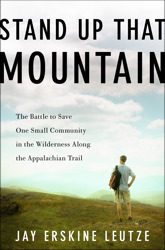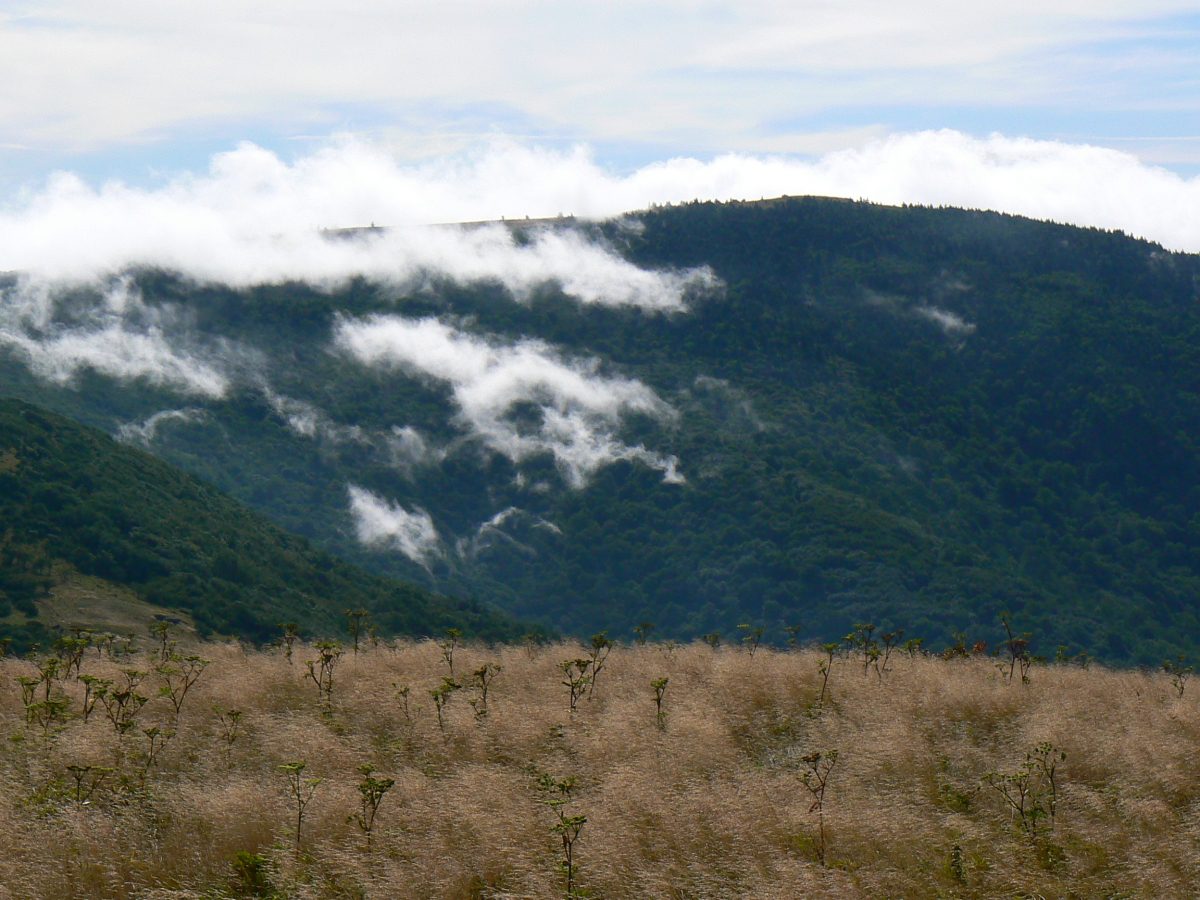He stood up for that mountain

The Handy Sanitary District offered its plan to bring wastewater treatment service to the Badin Lake area more than a decade ago. Given concerns about leaking septic tanks, few disputed the need, but when people learned the proposal included a discharge into the Uwharrie River, the community rallied to oppose it. Scores attended community meetings, and hundreds more signed petitions. Political leaders took note. Another option was found. The project was reconfigured to tie into an existing facility. The state agreed to reclassify the river and upgrade its designation, making it unlikely a future discharge would ever be permitted.
What if Handy had built a discharge pipe with no notice to landowners along the river? Residents of a small community in the N.C. mountains faced a similar predicament with an open-pit gravel mine. Jay Erskine Leutze recounts their riveting story in his new book, Stand Up That Mountain. Leutze earned a law degree at UNC but was never admitted to the bar. After working for a bookstore in Boston for several years, he turned down a promotion that would have allowed him to travel the world. Instead, he moved to his family’s cabin in Avery County to lead a simple and solitary life – hiking, fishing and writing. He trimmed his expenses to $500 a month. He quit buying clothes and cut his own hair. Much of his food came from his garden and the surrounding forest.
In the summer of 1999, his peaceful existence was disrupted by a droning chainsaw, an unnerving explosion and a phone call from an articulate and informed young woman. She rushed to explain that mine owner Paul Brown had “pulled a shot over at the rock crusher.” The blast had cracked the foundation of their house. Fourteen-year-old Ashley Cook, who had read up on mining laws on the Internet, then handed the phone to her aunt, Ollie Ve Cox. Strong and indignant, she wanted Leutze’s help. “Paul, he’s coming in here like a Scud missile,” she said. (An eloquent mountain woman, Cox is the source of the book’s poetic title.)
Leutze borrowed a cell phone and ran up a bill that far exceeded his monthly expenses. He put thousands of miles on his truck, traveling the state to make his case to journalists in Asheville and Charlotte, bureaucrats in Raleigh and lawyers in Hickory and Chapel Hill. As Leutze distills the case late in the book, “The failure to notify the adjoining landowners of their right to contest it was the original sin, and everything else is the fruit of a poison tree.”
The permit area had been drawn 50 feet inside the property boundary, a maneuver that allowed the mine owner to basically notify himself. This detail had somehow escaped N.C. state government officials during the permitting process, as did the mine’s proximity to the Appalachian Trail. The 151-acre site on Belview Mountain would subject north-bound hikers to a direct view of the scarred landscape for more than a mile.
The author’s lucid and lyrical writing takes us down the rabbit hole into the legal system. The case dragged on for nearly five years, working its way up through the ranks to the state’s highest court. Along the way were victories and defeats, improbable connections, chance encounters and even a fortuitous lightning strike. I’ve never read a legal thriller, but now I’m “rurent,” as Ollie Cox (or my Dad) would say. I can’t imagine Grisham or Turow offering up a more compelling narrative or such complex characters, all shot through with a dose of wry humor.
The Dog Town Bunch, as they called themselves, worked the case on all levels. Ashley Cook trolled the Internet for information, and Cox photographed illegal activities. Her son, Freddy, scouted the site on his dirt bike. Leutze built coalitions across the state and nation. This included dragging people up a strenuous section of the Appalachian Trail so they could see the impact for themselves. On one of these outings, Leutze is overjoyed when their lead lawyer dismisses the possibility of settling for modifications to the mine. “I was not going to be alone on this ever again,” he writes. Here, the book transcends the specific situation and becomes universal. We all want someone to believe our stories, to value the piece of land we hold so dear.
The man who had sought a solitary life had become part of a community and a team. In one of the book’s most touching passages, Cox’s family recognizes they can never repay Leutze for the expenses he has incurred and the time and effort he has put into the case, but they take up a collection and present him with a microwave oven and a satellite dish with two years of service so he can watch Carolina basketball games.
In the interest of full disclosure, I’ve know Jay Leutze since college. He has also been a friend to the Uwharries. We’re fortunate his dedication to the outdoors extends far beyond his beloved Roan Highlands. He has hiked and paddled with us, and he has advocated at the state and federal level in support of our efforts to protect the Uwharrie River and to reconnect the historic Uwharrie Trail.
Three years into the case, he needed a break and endeavored to visit “10 of the natural wonders of the state” he had somehow neglected to see. Among the likes of Looking Glass Rock and Panthertown Valley, he included the Uwharrie River. It earned a place on his list because a community had come together and fought to protect it, just as they were doing on behalf of Belview Mountain.
Jay Leutze will read from Stand Up That Mountain at the Catawba Center for the Environment in Salisbury at 6:30 p.m. Thursday, Aug. 23. The event, co-sponsored by the LandTrust for Central North Carolina, is free and open to the public, but registration is required. Visit www.centerfortheenvironment.org or call (704) 637-4727 for more information.